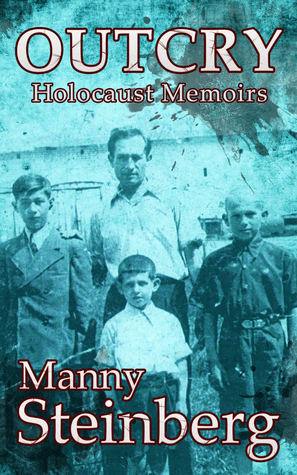
I Have Lived A Thousand Years: Growing Up In The Holocaust
Book Description
Survival hangs by a thread as a young girl grapples with the horrors of the Holocaust, transforming from a carefree child to a resilient young woman in the face of unimaginable loss. Livia Bitton-Jackson’s powerful memoir captures the raw emotions of hope, despair, and the unwavering strength of the human spirit. Each harrowing day in the concentration camp tests her courage, friendships, and will to live. Through her eyes, the reader experiences both the darkness and the flickers of humanity amid chaos. How does one find the will to grow when life itself seems intent on stripping away everything precious?
Quick Book Summary
"I Have Lived a Thousand Years: Growing Up in the Holocaust" is Livia Bitton-Jackson’s deeply moving memoir, tracing her harrowing journey from a young girl in Hungary to a Holocaust survivor. At just thirteen, Livia (then Elli) endures the brutality of ghettos, labor camps, and Auschwitz, facing unimaginable loss alongside her mother. As her innocence is shattered, she is forced to summon extraordinary courage, clinging to hope, resilience, and love for her family. Through hunger, terror, and dehumanization, Livia witnesses humanity at its worst—and sometimes at its best. Emerging from the darkness, her story not only bears witness to historical atrocity but also extols the power of hope and the unbreakable human spirit.
Summary of Key Ideas
Table of Contents
The Loss of Innocence and Family Bonds
Livia Bitton-Jackson’s childhood is marked by innocence and the close-knit bonds of her Jewish family in early-1940s Hungary. As the Nazi occupation unfolds, normal life is upended: freedoms are stripped, the Jewish community is segregated, and Livia, her brother, and her mother are forced into a ghetto. The bond with her mother becomes a vital lifeline, as together they navigate an abrupt transition from ordinary childhood fears to survival under unfathomable circumstances. This loss of innocence is profound, as Livia must quickly mature and learn to protect herself and her loved ones from the relentless threat surrounding them.
Dehumanization and Survival in the Camps
Inside Auschwitz and other labor camps, Livia faces systematic dehumanization that tests the limits of her physical and emotional endurance. She endures starvation, forced labor, and constant fear, yet small acts of kindness and solidarity among prisoners offer fleeting moments of humanity. The brutality of camp guards and the arbitrary cruelty threaten to crush hope, but daily survival comes to depend on courage, ingenuity, and the fierce support she and her mother lend each other. The memoir details both excruciating suffering and the bewildering suspension of ordinary morality that the camps foster.
Hope and Resilience Amid Despair
Amidst despair, hope clings tenuously. Livia’s determination to survive is fueled by her commitment to her mother and her dreams of future freedom. She draws strength from whispered promises, fleeting gestures of compassion between prisoners, and the recollection of a life interrupted. Hope is not constant, but it resurges in moments of extreme trial—such as when Livia rallies after illness or resists succumbing to exhaustion. Her resilience is both a personal triumph and a testament to the will to live, even when circumstances seem utterly hopeless.
The Role of Memory and Bearing Witness
As the war comes to an end, the experience of liberation is complex: relief and gratitude are tempered by overwhelming grief, as so many loved ones and members of Livia’s community have perished. Confronted with a world changed beyond recognition, Livia and her mother begin the difficult, often painful process of reclaiming their identities and processing their trauma. Adapting to freedom means facing survivor’s guilt and the daunting possibility of building a new life from the ashes of the past. Remembering becomes an act of resistance against forgetting and a vital part of healing.
The Restoration of Identity After Liberation
Ultimately, Livia’s memoir serves not only as a personal account but also as a critical act of bearing witness. She documents the horrors and small mercies experienced during the Holocaust to honor those who were lost and to ensure that future generations remember. The act of remembering is woven into her own process of restoration: through retelling her story, she confronts the pain and asserts her dignity. This memoir stands as both a warning and a tribute to the enduring strength of the human spirit in the face of unimaginable adversity.
Download This Summary
Get a free PDF of this summary instantly — no email required.





